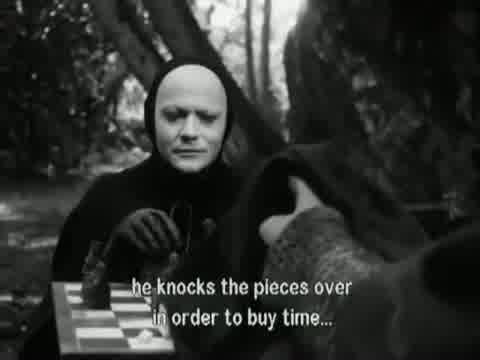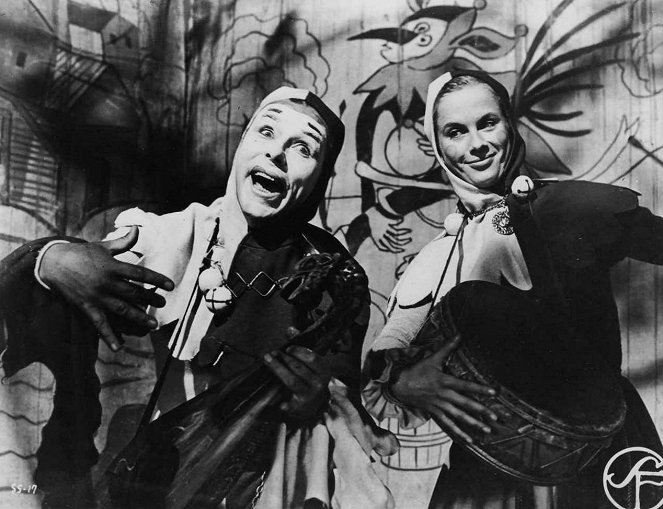Directed by:
Ingmar BergmanCinematography:
Gunnar FischerComposer:
Erik NordgrenCast:
Gunnar Björnstrand, Bengt Ekerot, Nils Poppe, Max von Sydow, Bibi Andersson, Inga Gill, Maud Hansson, Inga Landgré, Gunnel Lindblom, Bertil Anderberg (more)VOD (1)
Plots(1)
As the plague tears through medieval Europe, a knight (Max von Sydow), returning from the crusades, challenges Death to a game of chess in order to postpone his demise. An allegorical masterpiece asking big questions about faith and superstition, Ingmar Bergman's iconic The Seventh Seal remains one of cinema’s most important and influential films. (British Film Institute (BFI))
(more)Videos (1)
Reviews (5)
Maybe when I look at it in 10 years, it will tell me more, but for now, I still haven't been able to appreciate what Ingmar Bergman presents in this work. There are interesting characters and fates outlined here, the whole thing has a touch that gets under your skin and maybe makes you think, but as I said, I probably still need to mature.
()
A tolerable cult film that actually offers multiple levels for viewers of varying preferences, so I can't really be mad at the popularity this cerebral Grim Reaper film has gained even among the common folk.
()
I'll be honest with you: I have never really understood Ingmar Bergman, though with a few exceptions, and his critically acclaimed dramas usually simply bore me. The Seventh Seal is one of the few titles I come back to - perhaps because as an atheist, the spiritual aspect of the film passes me by, and unlike the interpreters of Bergman's work, I couldn't care less about the existential discussions of the 1950s conducted in the shadow of the Cold War and the threat of nuclear apocalypse. For me, the film remains a simple game about the fact that you can't outsmart death, or rather, that we all have to face it. Bergman had a lucky hand in choosing the actors, and perhaps even more than Max von Sydow in the main role, I find Gunnar Björnstrand's performance as the knight's squire, Jöns, likable. Perhaps the only thing I would criticize about the film is its overly stylized theatrical expression influenced by the fact that it was practically entirely created in the studio. Overall impression: 75%.
()
But He remains silent... The Seventh Seal is a film that will leave you with a lot of questions about the meaning of existence. You can ask yourself the same questions as the wandering crusader knight Antonius Block, but "I call out to Him in the darkness. But it’s as if no one was there". Don't expect anything more or less from it. However, it raises these questions in tremendously powerful scenes, so that even after multiple viewings, you will still be on the edge of your seat while watching Block's futile battle for life. A completely exceptional film that is rightly a classic and, together with Scorsese's The Last Temptation of Christ, the best "question asking" work.
()
A person safeguards their life in a chess battle against Death, both players speaking to each other through bars, while intertwining (dis)belief in God, variously depicted attempts to escape the ubiquitous weight of life or various human weaknesses with anger or desire in the foreground. Bergman's reproduction of sad hope.
()



Ads